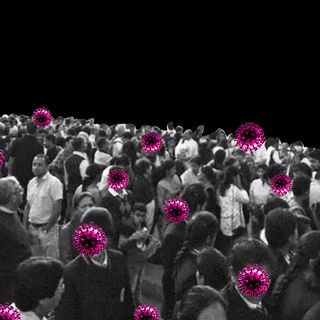Deaths from hunger are outpacing Covid19-fatalities, according to a new report, which suggests that the prevailing vaccine inequality is set to worsen the rapidly unfolding hunger crisis — especially in “emerging hunger hotspots” like India.
Titled “The Hunger Virus Multiplies,” the report was published by Oxfam International, a global non-profit group last week. It stated that 11 people around the world are dying of hunger every minute, as compared to Covid19, which is killing about 7 people per minute.
However, the study did find a six-fold increase in famine-like conditions globally since the pandemic began in 2020. In fact, in countries like Brazil and India, which witnessed some of the highest rates of infection, hunger also surged parallelly.
Highlighting the state of hunger in India, the report said: “In 2020, nearly 190 million people were under-nourished and over one-third of children under the age of five were stunted. People’s consumption of essential food staples like lentils fell by 64%, while their consumption of green vegetables plummeted by 73% in 2020. Over 70% of people reported having to reduce their overall quantity of food intake compared to their pre-pandemic eating levels.”
But while the pandemic may have worsened the crisis, Covid19 isn’t single-handedly responsible for it. According to the report, this acute global hunger is linked to the “three lethal Cs: conflict, Covid19, and the climate crisis” — with conflict being the biggest contributor to the hunger crisis. “Instead of battling the pandemic, warring parties fought each other, too often landing the last blow to millions already battered by weather disasters and economic shocks,” Abby Maxman, Oxfam America’s president, told Al Jazeera.
Related on The Swaddle:
UN Warns World Heading Toward Famines of “Biblical Proportions” Due to Covid19
Climate change, too, is adding to the problem — especially due to extreme weather events destroying lives and livelihoods and pushing people to poverty. In fact, in 2020, the world suffered $50 billion worth of damages due to extreme weather events exacerbated by climate change — out of which a loss of $14 billion was experienced by India alone in the aftermath of Cyclone Amphan. Earlier studies, too, have found “unprecedented” effects of climate change threatening food security — so much so it is perceived as a threat to the progress made towards eradicating childhood malnutrition.
Unfortunately, the prevailing vaccine inequality could further worsen the hunger crisis by slowing down recovery from the economic impact of the pandemic, “mak[ing] the escape from hunger and poverty much more difficult for millions of people around the world,” the report warned. In addition, people experiencing hunger and malnutrition are also at a greater risk of contracting diseases, including Covid19.
At the present rate, vaccine inequality could cost the world $9.2 trillion in economic losses, while India risks losing as much $786 billion — more than a quarter of its GDP.
“Unless rich countries stop holding vaccine recipes hostage, the virus will continue raging in countries without enough resources, put millions of lives at risk, and push millions more to the brink,” the report stated. The “solution” offered by the report is for governments to cooperate with each other and agree to a temporary waiver of intellectual property norms surrounding Covid19-related health technologies.
“[W]e must remember that these figures are made up of individual people facing unimaginable suffering,” Maxman said, adding that “even one person is too many.”




